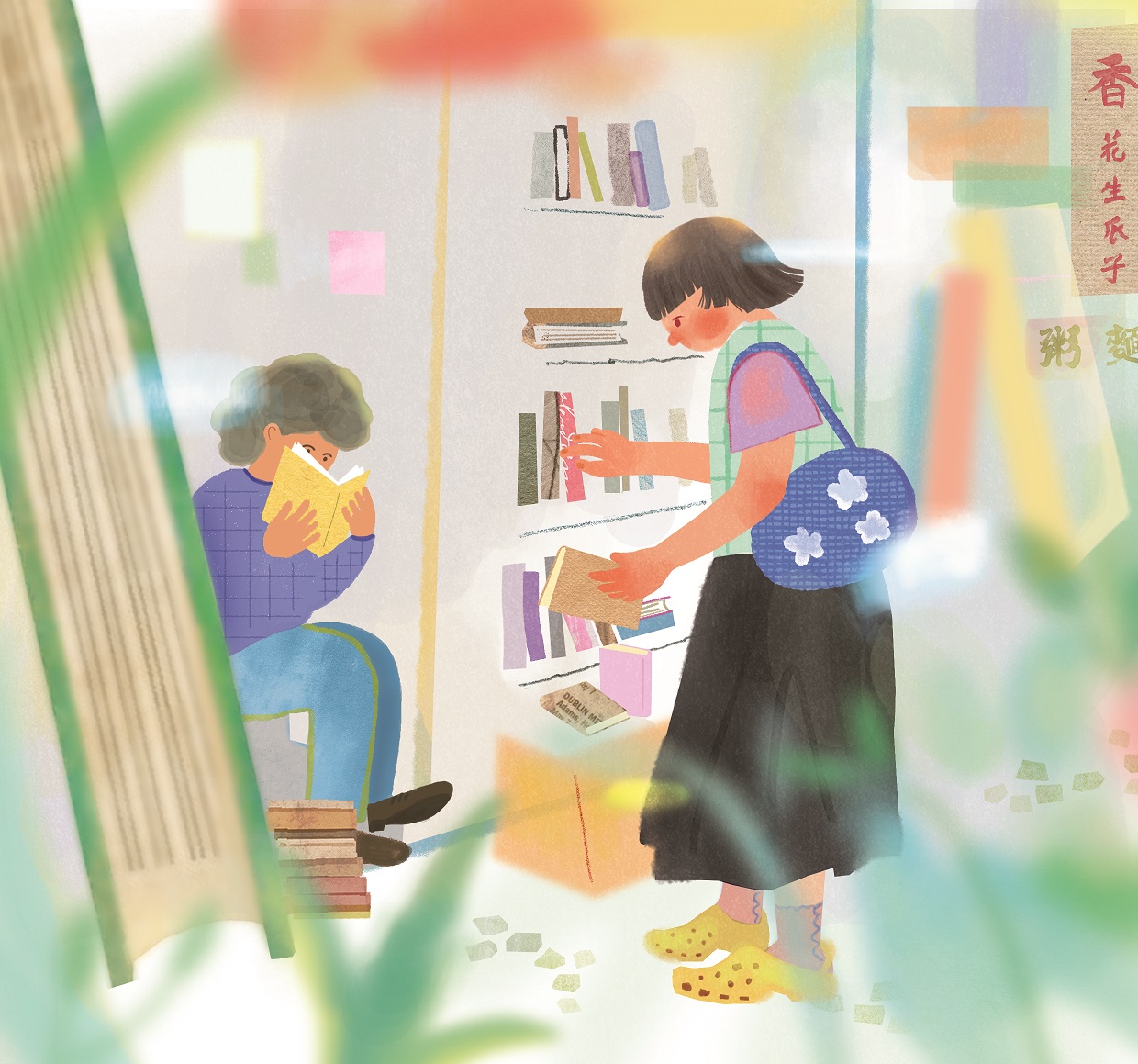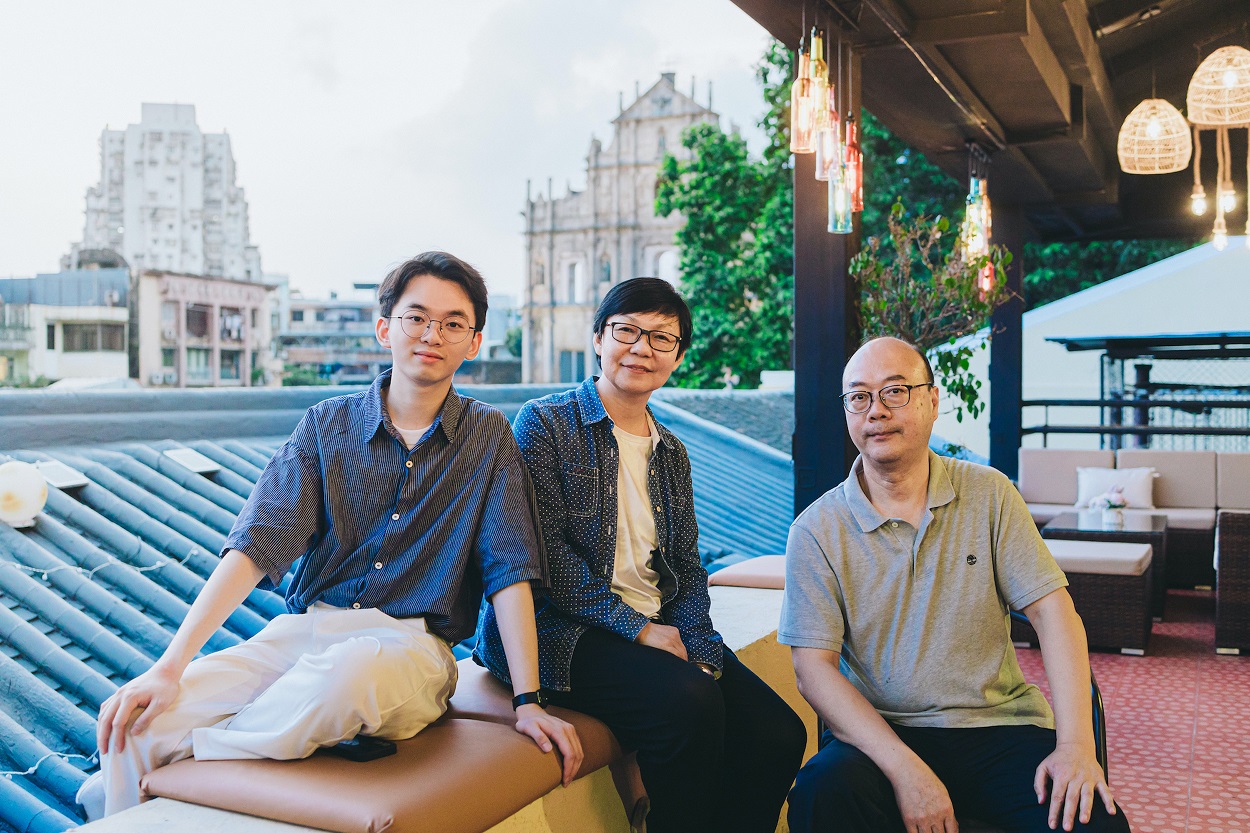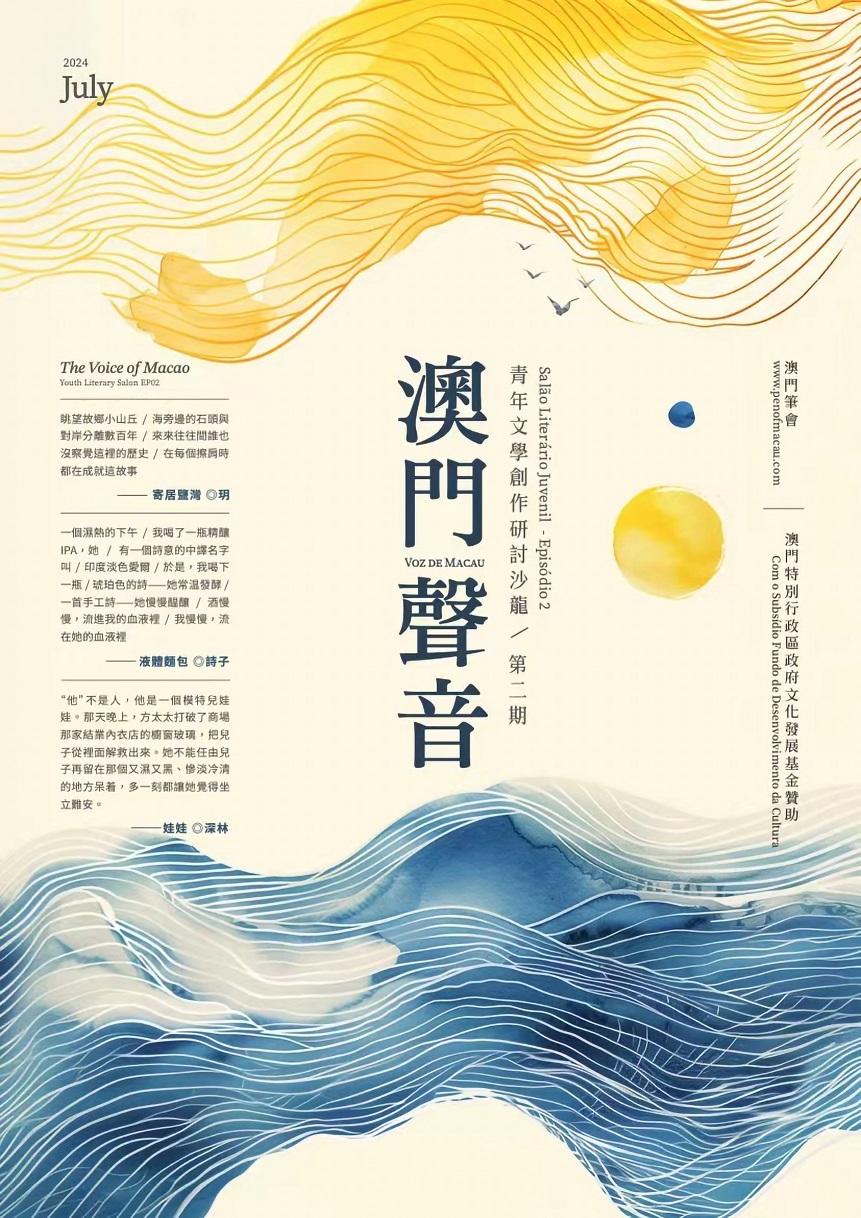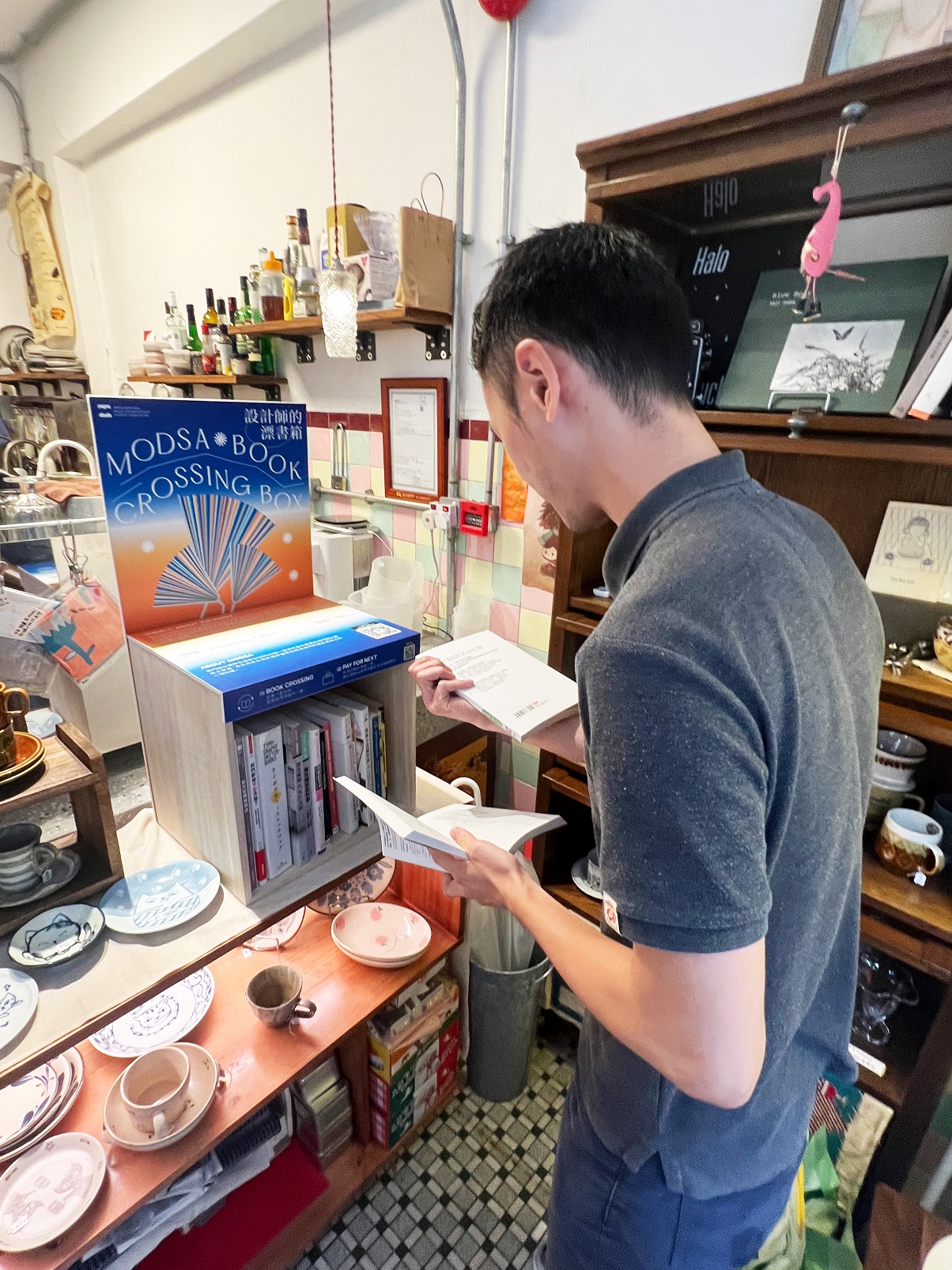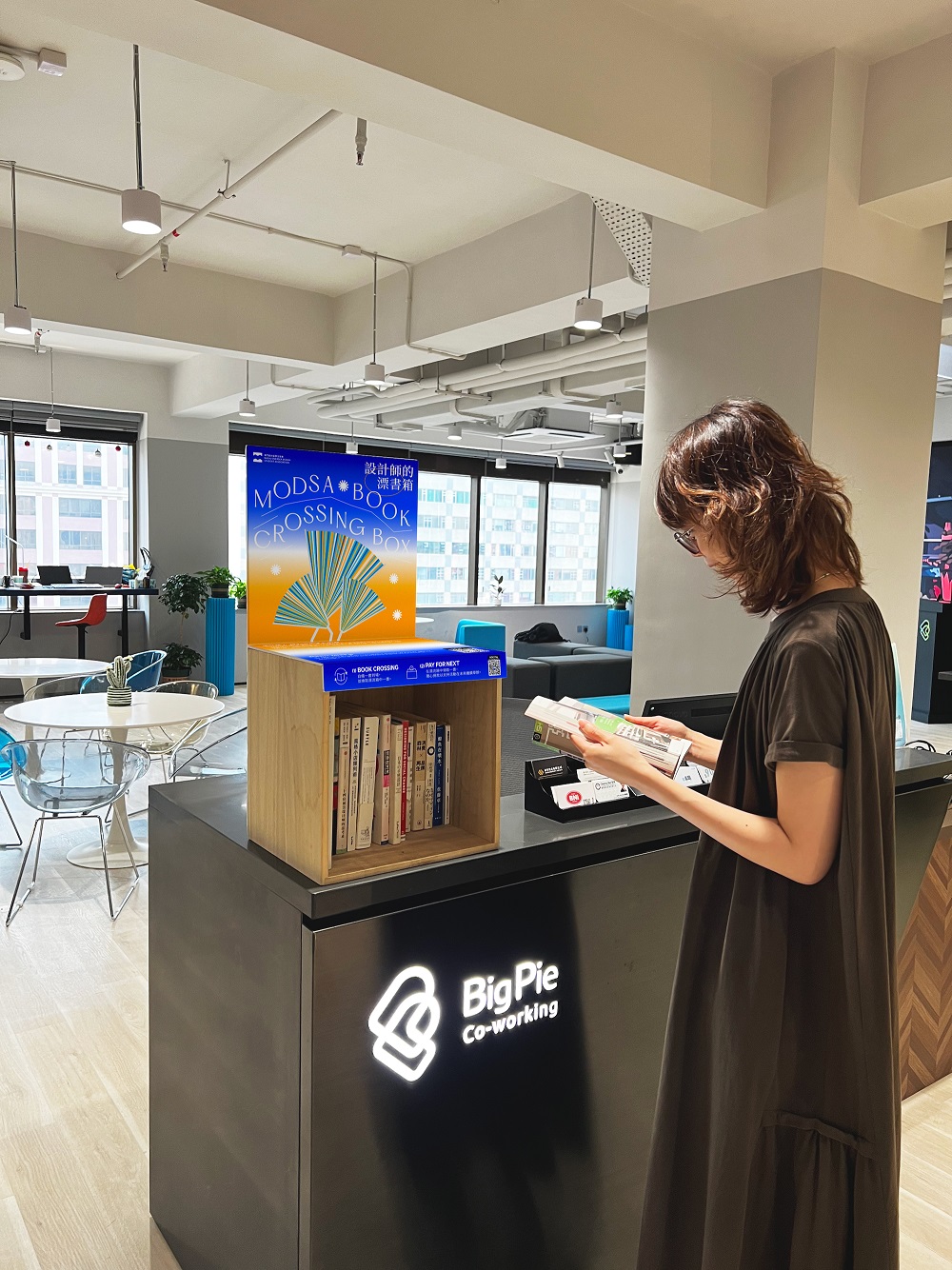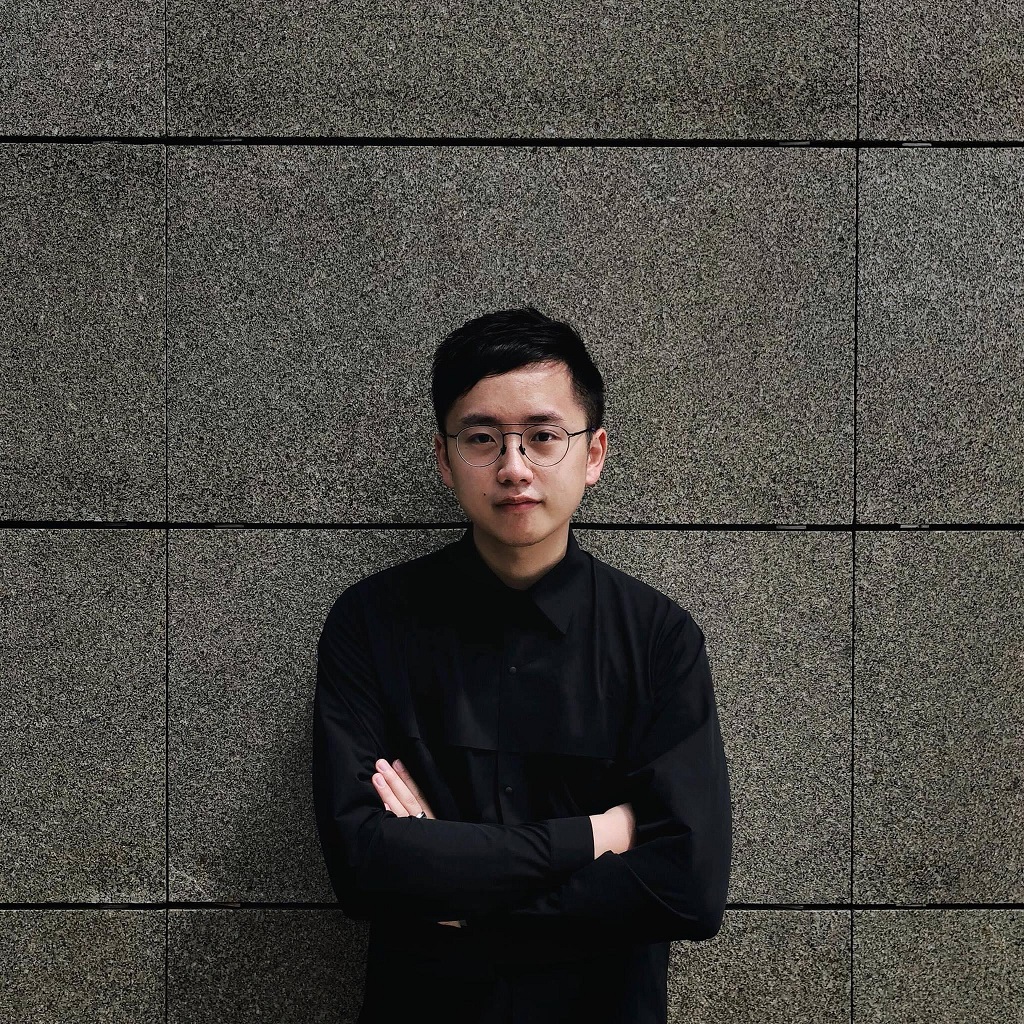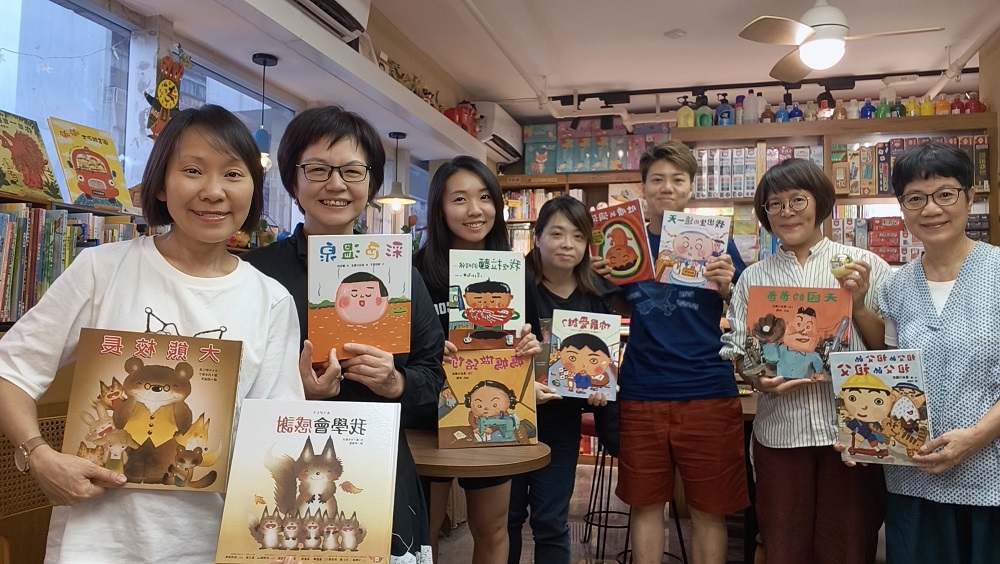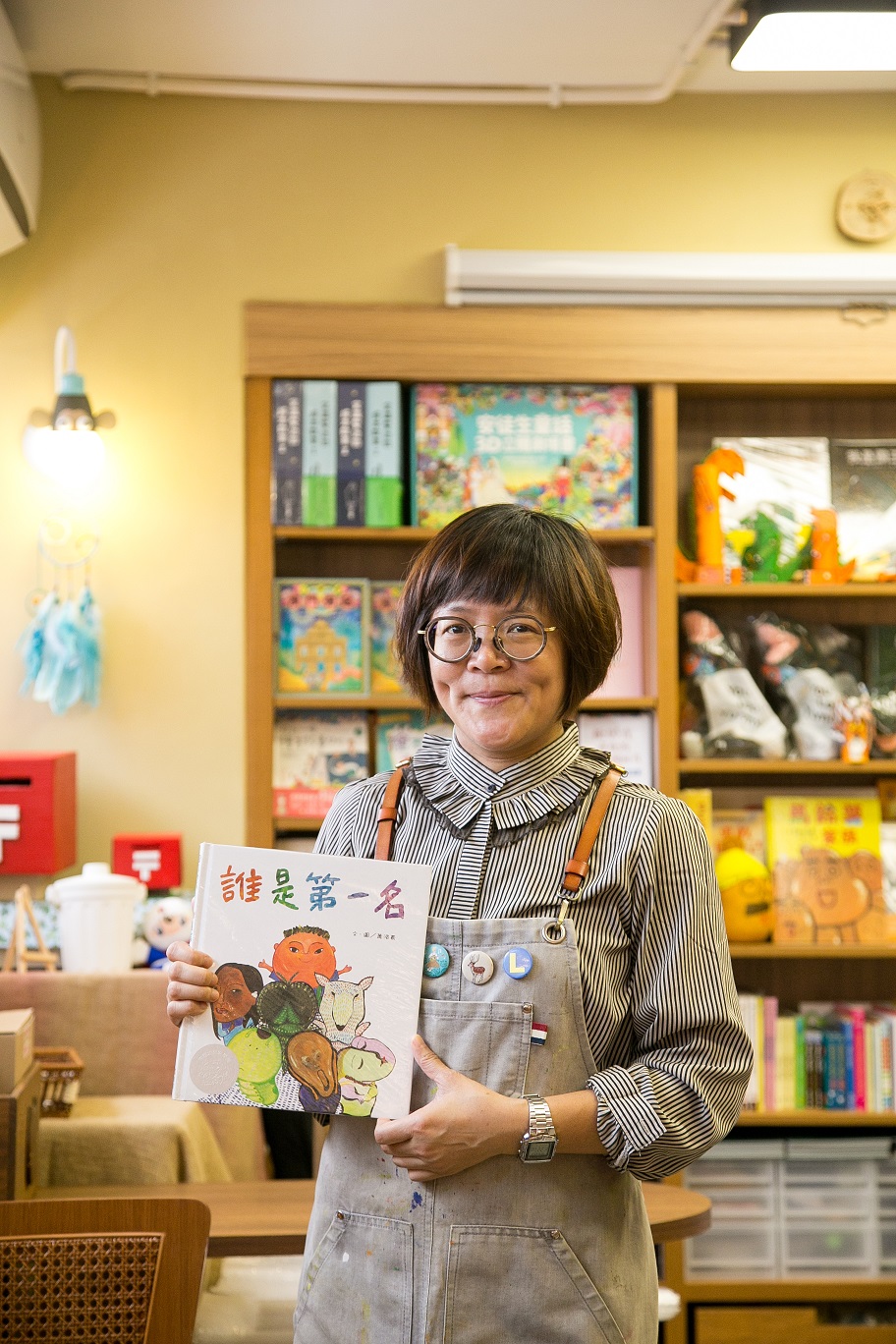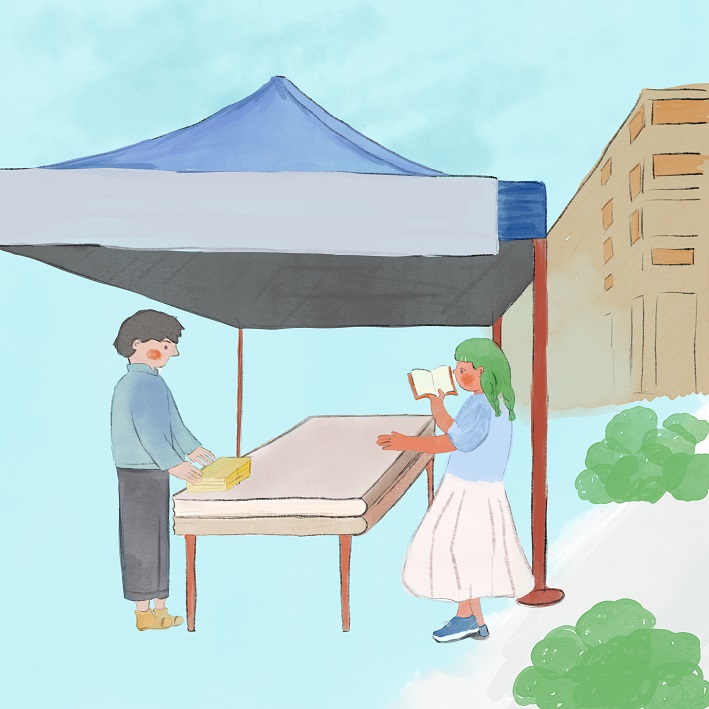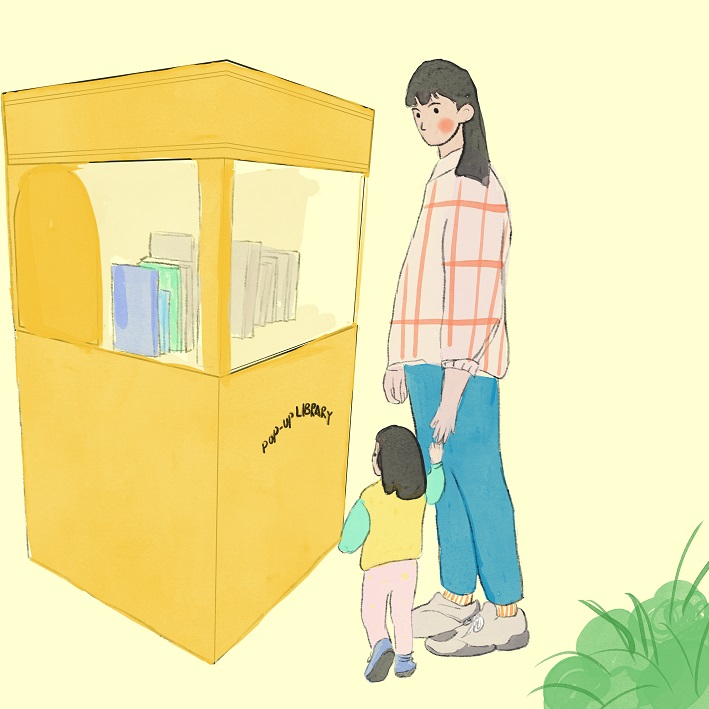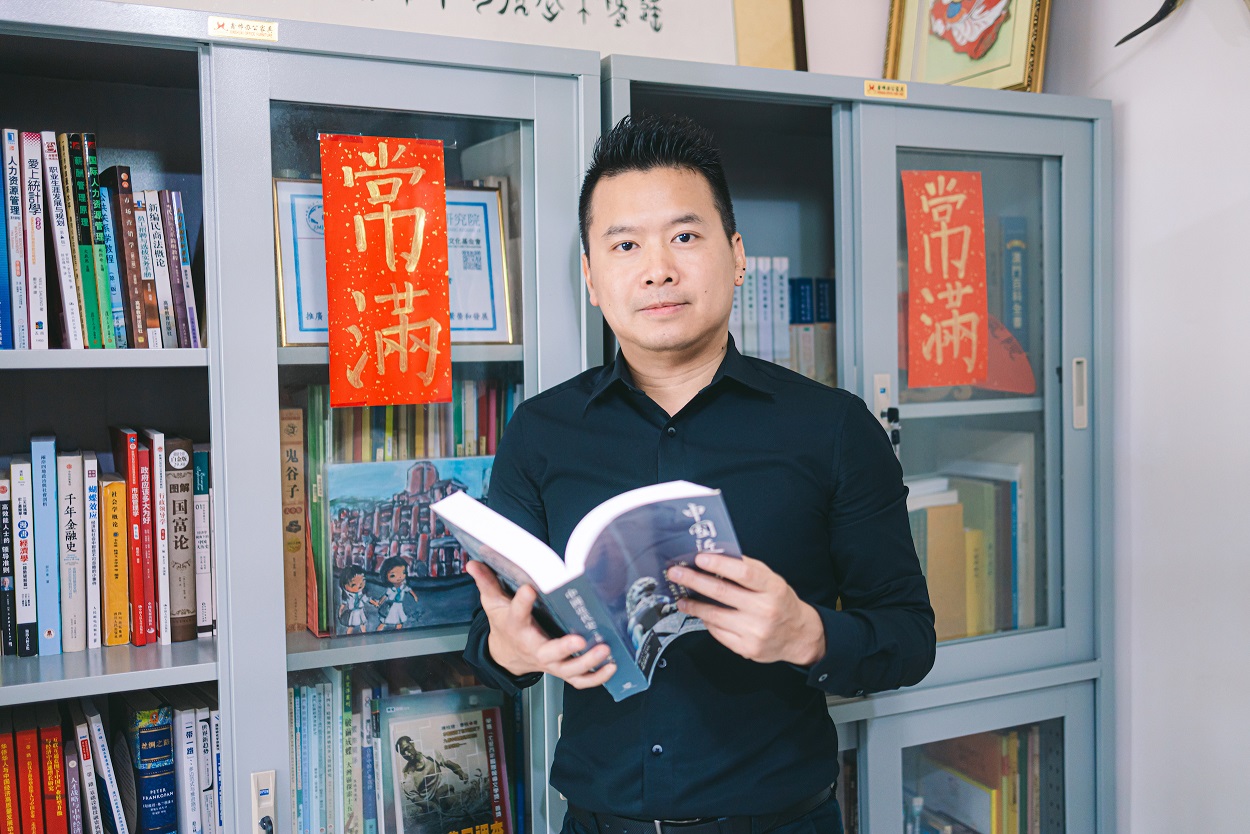As Macao is committed to the development of a “City of Reading”, an increasing number of associations take part in the promotion of reading, making reading and lifelong learning the most sought-after trend. The Macao Federation of Trade Unions Worker Bookhouse, jointly established by the All-China Federation of Trade Unions and the Macao Federation of Trade Unions (FAOM), acts as a good example to encourage people to enrich their lives with reading by launching a variety of reading activities suitable for the general public, such as book recommendations, reading sharing sessions, workshops, as well as the creation of mobile bookhouses in collaboration with enterprises.
The Worker Bookhouse has a collection of nearly 3,000 books, on genres ranging from humanities and social sciences, politics, economics and finance, to children’s books published in Macao, making it a reading space for the general workers and residents. According to Lam Cheong U, Deputy Secretary-General of FAOM and the person in charge of Worker Bookhouse, the Bookhouse is slightly different from the ordinary libraries where people usually read quietly, as readers are more than welcome to “make some noise” in the Bookhouse, and meet friends through reading, discussing and sharing with fellow book mates. Therefore, the Bookhouse regularly holds events such as reading gatherings and parent-child reading workshops to attract different readers to “make noises” as they please.
Is the fact that Worker Bookhouse is only 2 minutes away from Patane Library likely to affect its visit rate? The answer is no. Fong Cho Hou, Head Librarian of Worker Bookhouse who is responsible for managing its daily operation, shared that the Bookhouse is the most bustling in the afternoons, as people in the neighbourhood and after-school students all love to visit the Bookhouse to read and relax. The reason is that the Bookhouse offers not only a traditional library area, but also a cultural and creative area, and a water bar that serves light refreshments, thus creating a comfortable and multi-functional reading environment for the readers. The relationship between the Bookhouse and the public library appears to be synergistic and complementary, satisfying different requirements of readers for their ideal reading environment, while creating a favourable atmosphere for reading in the community.
In addition to the Worker Bookhouse, Lam mentioned that they are also actively stepping out to foster the construction of mobile bookhouses in collaboration with Macao enterprises, bringing bookhouses to the enterprises, and motivating the workers to develop an interest in reading, with a view to penetrating the culture of reading in the enterprises. This April, FAOM brought its mobile bookhouse to a Macao leisure enterprise for the first time, where it co-launched with Melco Resorts & Entertainment a mobile bookhouse named Melco’s Colleagues’ Bookhouse, which has received plenty of positive responses. Veron Mok, Vice President of Human Resources at Studio City, stated that the mobile bookhouse is highly popular among colleagues. The staff said that the mobile bookhouse is a space for people to relax and enhance their knowledge, which not only enriches their after-work life, but also encourages exchanges and interactions among colleagues.
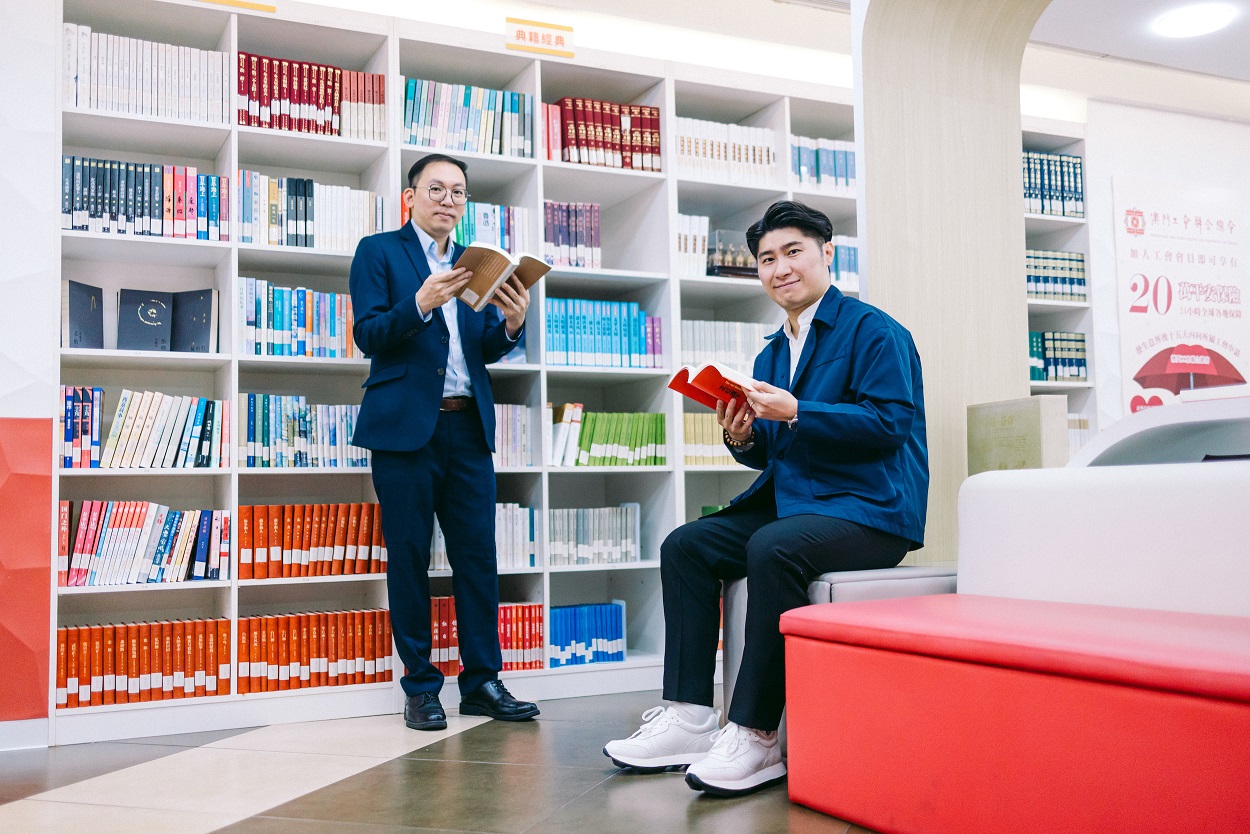
Lam Cheong U (left), Deputy Secretary-General of FAOM and the person in charge of Worker Bookhouse, and Fong Cho Hou(right), Head Librarian of Worker Bookhouse, hope that more activities will be developed in the future to bring better experience to workers and residents.
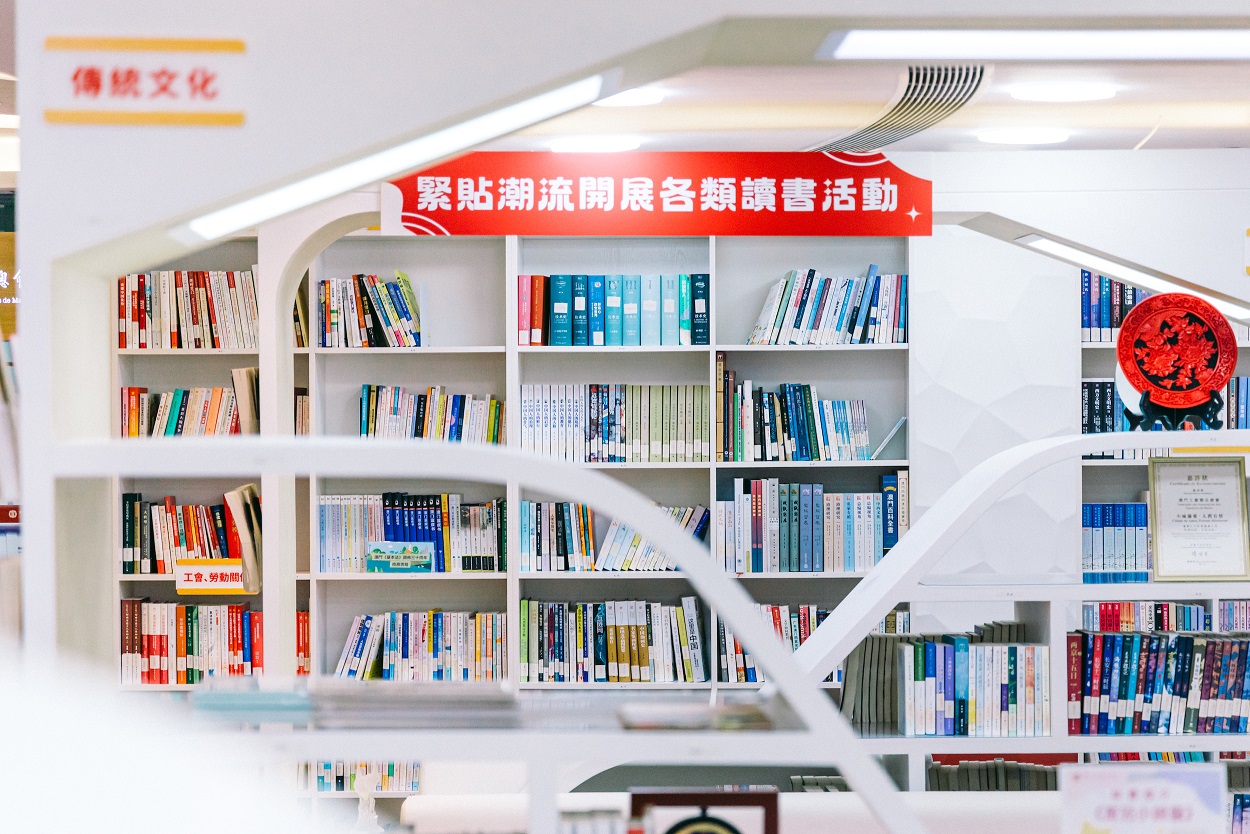
The Worker Bookhouse is open to all groups of people, providing a space for readers to read books on humanities, social sciences, politics, economics and finance.
